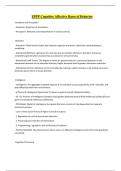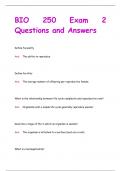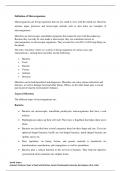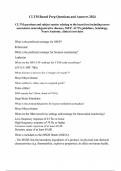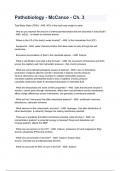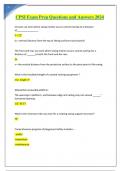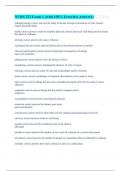Tentamen (uitwerkingen)
EPPP Cognitive Affective Bases of Behavior
- Vak
- Instelling
EPPP Cognitive Affective Bases of Behavior Sensation and Perception - Sensation: Detection of stimulation. - Perception: Detection and interpretation of sensory stimuli. Attention - Attention: Global mental states and selective cognitive processes; selectively concentrating on something. - A...
[Meer zien]
